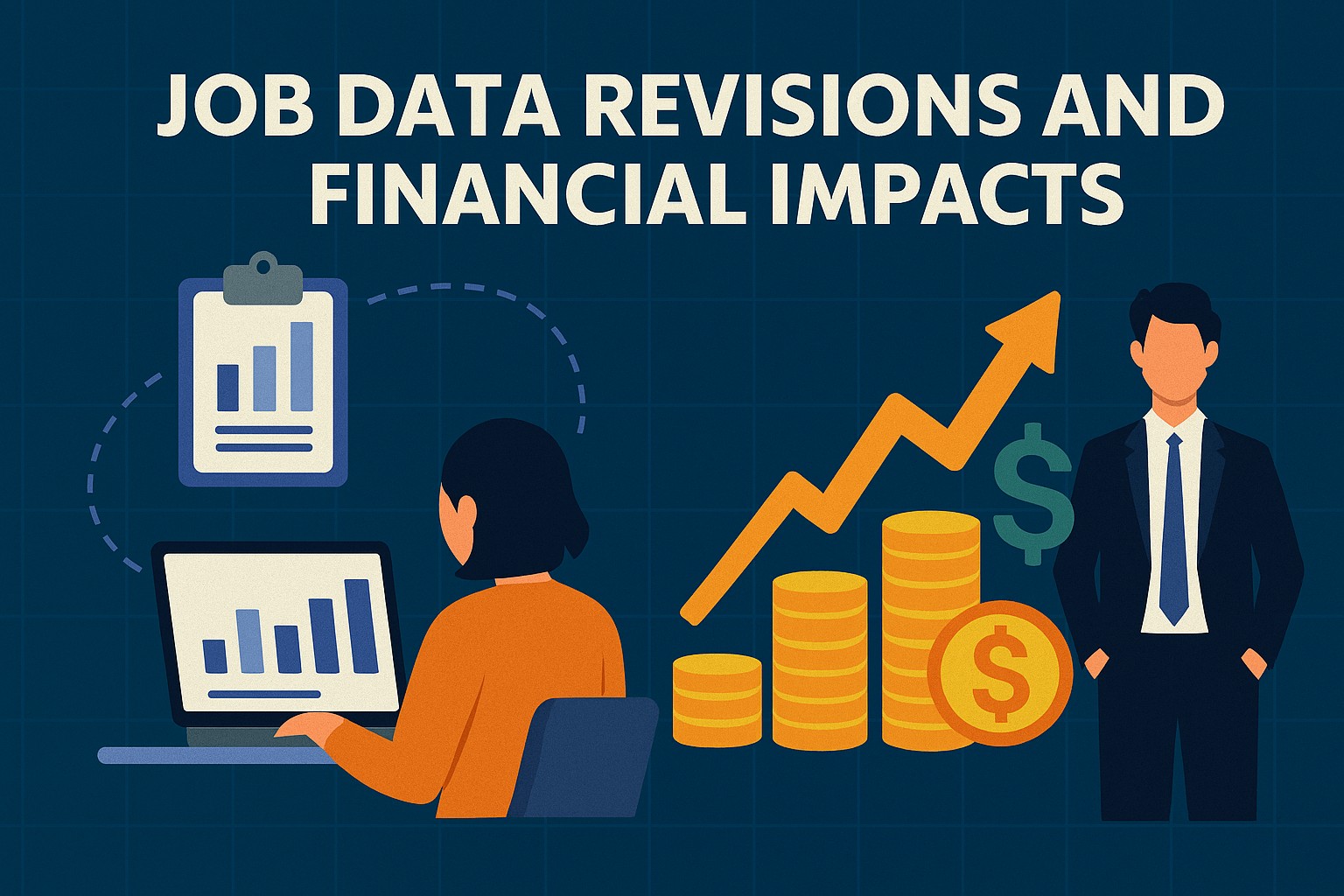Jobs Data Revisions and Financial Impacts
Presented by Marc Aarons
The August jobs report showed 22,000 jobs were created that month, well below the 75,000 monthly jobs expected. In addition, the Bureau of Labor Statistics’ recent employment data revision for April 2024 to March 2025 revealed 911,000 fewer jobs were added than initially reported. This is the largest downward revision on record.
You’re not alone if you’re uncertain about what this means for your financial future. Whether you’re currently working, worried about job security, or facing economic challenges, I put together a few very general best practices to consider. Of course, if you’d like to discuss your personal situation, I’d be happy to get a meeting on the books.
Build or Replenish Your Emergency Savings. Financial experts now recommend saving six to 12 months’ worth of essential living expenses, up from three to six months previously. This shift reflects the rising cost of living and an inflation rate that remains above the Federal Reserve’s target, making a larger cushion more critical for many households.
If you haven’t started, consider beginning with a smaller goal like one month of expenses and build from there. High-yield savings or money market accounts may help money grow while staying accessible.
Take Steps Now If You’re Worried About Job Security. If you’re feeling uncertain about job security, preparing for the unexpected can help provide peace of mind. Steps to consider include:
- Cutting back on unnecessary spending and reviewing your monthly budget.
- Boosting your savings contributions if you’re currently under-saving.
- Updating your resume and upskilling in your field.
- Stress testing your financial plan by asking, “What if I lose income for six months?”
Understand Your Options If You’re Out of Work or Feeling Financial Strain. On average, the duration of unemployment is now over 21 weeks — nearly six months. If you’re currently without income or worried about covering essentials, here are a few common moves, along with several important notes of caution.
- Unemployment benefits and community support – Programs like unemployment insurance, job placement services, or short-term aid from local nonprofits can offer some support while you work toward longer-term stability.
- Consider side gigs or freelance work – Taking on temporary or freelance income can help bridge gaps during unemployment. Just be sure to check the state’s unemployment insurance rules, as earning income from freelance or gig work may affect eligibility or benefit amounts.
- Home equity loans or Home Equity Line of Credit – These can sometimes help consolidate high-interest debt at lower rates than credit cards. But because your home is the collateral, missed payments risk foreclosure. While home equity loan rates are usually fixed, HELOC rates can rise over time if Federal Reserve rates rise. They’re both best used strategically in specific situations, not as a first resort.
- 401(k) hardship withdrawals or 401(k) loans – Both options allow access to retirement funds in an emergency. A hardship withdrawal provides cash but comes with taxes, penalties (if you’re under the age of 59 ½), and permanently reduces your savings. These withdrawals can’t be repaid, so they’re best considered as a last resort. A 401(k) loan avoids those penalties and is repaid over time by automatic payroll deductions within five years, but it temporarily takes money out of the market. Additionally, repayment must be made in a shorter time frame if you separate from your job, or you’ll be faced with taxable income hikes and early withdrawal fees.
You don’t need to navigate job loss or financial instability alone. I’m always here to help you determine the best financial path forward.
If you would like to meet, please don’t hesitate to give me a call or respond to this email.
Please don’t hesitate to reach out with any questions or concerns.
Marc Aarons may be reached at 714-887-8000 or Email Marc
Investment advisory and financial planning services are provided by Money Managers, Inc. a registered investment advisor. Our CRD Number is 151602. To access our most recent version of our Form ADV, Form ADV Part 2A and privacy policy, visit https://adviserinfo.sec.gov/. This information is for educational purposes only. Information presented is for educational purposes only and does not intend to make an offer or solicitation for the sale or purchase of any securities, and past performance is not indicative of future results. Investments involve risk and are not guaranteed. Be sure to first consult with a qualified financial adviser and/or tax professional before implementing any strategy discussed here.

Comments are closed